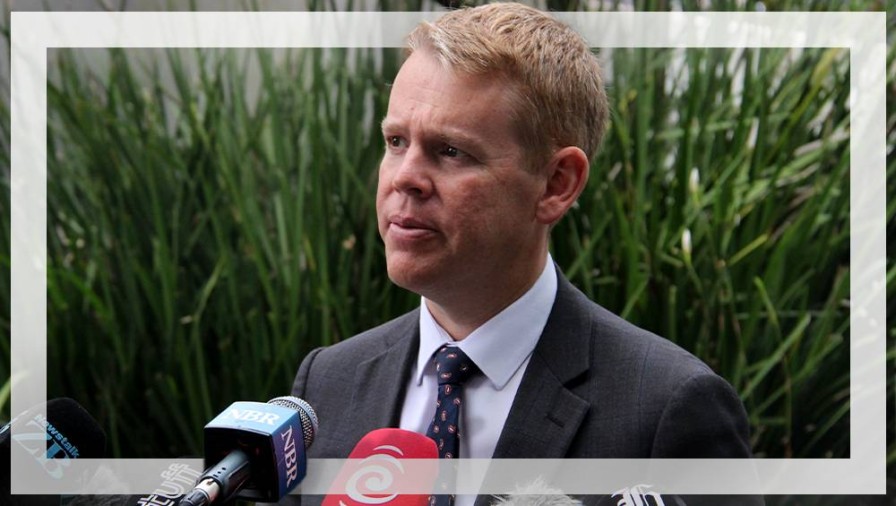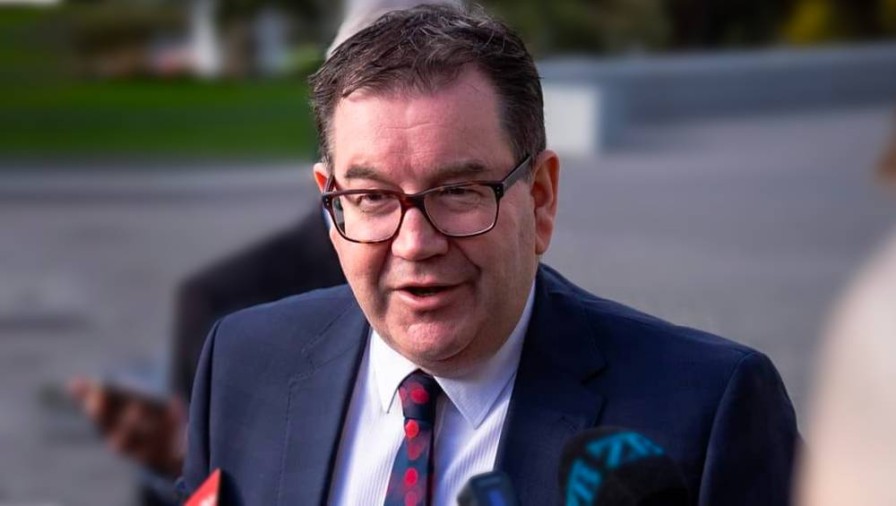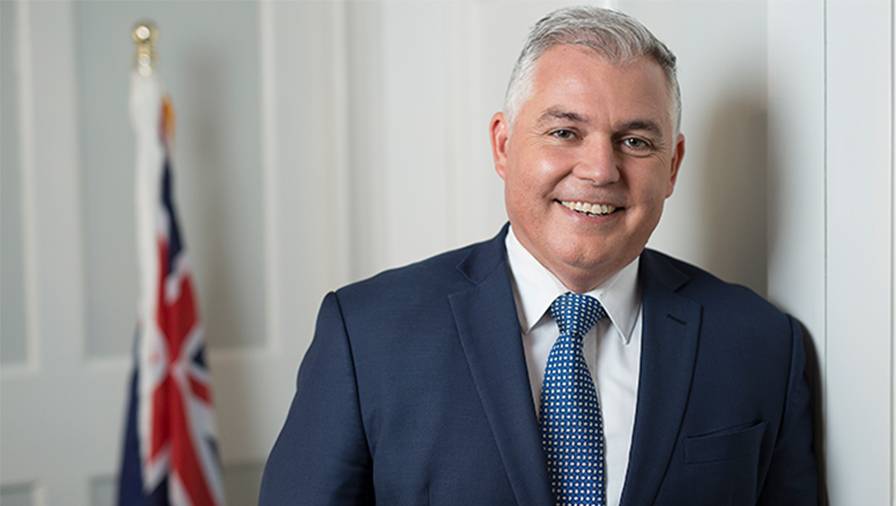Tragedy, polls, retirement, forced apology and a grim scorecard
ANALYSIS: Chris Hipkins loses a political ally in Grant Robertson.
WATCH: NBR political editor speaks with Grant Walker.
ANALYSIS: Chris Hipkins loses a political ally in Grant Robertson.
WATCH: NBR political editor speaks with Grant Walker.
Parliament was shocked this week by the sudden death of Green MP Fa’anānā Efeso Collins.
Collins, who had only delivered his maiden speech the week before, collapsed and died during a charity event in Auckland on Wednesday morning. In response, Parliament sat briefly that afternoon – so MPs could pay tribute – and then adjourned until next week.
His death brought a halt to politics for the week as political friends and foes united in praising him.
Green Party co-leader James Shaw described Collins as an “extraordinary man” and Prime Minister Christopher Luxon called him a “true servant leader”.
Earlier, the week had started with Luxon’s state-of-the-nation speech on Sunday, followed by 1News’ first political poll of the year on Monday and then Grant Robertson announcing his retirement on Tuesday.
In the 1News Verian poll, National recorded 38%, Labour 28%, the Green Party 12%, Act 8%, New Zealand First 6%, and Te Pāti Māori 4%, while the Opportunities Party recorded 2% support. On those numbers – if that were the election result – little would change. With little to report on about the party results, news media seized on the results for most preferred prime minister and how support for Chris Hipkins fell from 25% in a poll just before the election to 15% in this poll.
It prompted the usual questions about his leadership, with the 1News website carrying the headline on one of its stories saying ‘Hipkins not contemplating resignation after 10% popularity drop’.

A recent poll had some media questioning Chris Hipkins’ leadership of the Labour Party.
NBR presenter Grant Walker asks how long it will be before the knives are out and whether there is any point considering leadership at this point of the electoral cycle.
It has become almost habit now to question a politician’s hold on the leadership if their rating in the poll drops, even though in New Zealand’s MMP election system, no-one votes directly for the prime minister, unlike presidential elections in the United States. What is important, though – and the polls never give a clear answer – is whether a leader’s poll rating corresponds with their party’s polling.
In 2017, former Labour leader Andrew Little concluded that, under his leadership, Labour’s support was faltering so just weeks before the election, he stepped aside in favour of Jacinda Ardern. The effect was immediate, and Labour’s support lifted substantially enough to put it in a position to form the next government.
In this week’s poll, Labour is still polling better than its result in the election, even if it is still below 30%. But as Hipkins points out, it has had little opportunity to be in the limelight and given he is no longer prime minister, it was almost inevitable his support would fall.
So, to answer Walker’s question, the knives will not be out now. It is surely too early in the electoral cycle to consider a change of leader, but the question might arise closer to the election if Labour is unable to lift its support and bridge the gap between it and National. Yet Labour MPs will surely heed the lessons from their period in Opposition after the 2008 election, when continued disunity and questions about the leader scuppered any hopes of it winning back power until Little made his personal sacrifice in 2017.
As well, Robertson’s announced retirement a day after the poll reinforced the need for Labour to keep hold of those experienced politicians – Hipkins included – it still retains in its parliamentary ranks.
Robertson – who was first elected to Parliament in 2008 and served as finance minister from 2017 to 2023 – will be a loss for Labour. Hipkins is also losing both a friend and political ally within Parliament.

Retiring politician Grant Robertson.
But this is not the first time a seasoned politician has quit politics and for Labour it need not be a damaging blow.
Robertson has been replaced as finance spokesperson by Barbara Edmonds, who becomes the first woman and first person of Pasifika heritage to take on that role. She is also a tax expert and, as Robertson himself noted, she “can count”. In many ways, she brings experience and knowledge to the role that few previous finance spokespeople or ministers in either National or Labour have had.
She has, however, been placed at No 4 in Labour’s caucus rankings behind Hipkins, deputy leader Carmel Sepuloni, and senior MP Megan Woods. Usually, the finance spokesperson is No 3 but, in this case, Woods’ seniority held sway.
This week, Hipkins had to essentially discipline one of his MPs after police spokesperson Ginny Andersen, during a radio slot with Police Minister Mark Mitchell, said Mitchell had been paid to kill people. The reference was to Mitchell’s role before entering politics of working as a security contractor in Iraq, eventually setting up his own private security company.
During the radio exchange, she asked him if he kept “a tally of how many you shot”. Mitchell said his work included tasks commissioned by the United Nations, such as freeing up supplies at ports controlled by criminal gangs.
Andersen initially stuck to her guns, but apologised, if somewhat half-heartedly, after Hipkins intervened.

Police Minister Mark Mitchell.
Which brings us back to the beginning of the week and Luxon’s state-of-the-nation speech, where he described, more than once, New Zealand’s economy as fragile. It was a grim scorecard for the nation, with Luxon repeating earlier comments from Finance Minister Nicola Willis that the public finances were in worse shape than they had thought.
But the risks to the forecasts were all spelt out very clearly in the Pre-election Fiscal and Economic Update. It seems the Government might be preparing the public for a Budget – which was already going to be parsimonious – that will fail to meet the expectations it had set late last year.
Meanwhile, it has just two weeks to tick off all the initiatives it laid out in its 100-day plan. Losing parliamentary sitting days on Wednesday and Thursday – following Efeso Collins’ death – has not helped. It means more urgency next week as the Government forges on with its legislative programme, including introducing a new fast-track consenting bill.
Brent Edwards is NBR’s political editor.